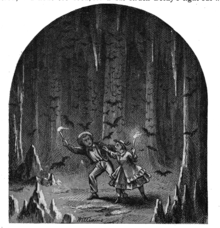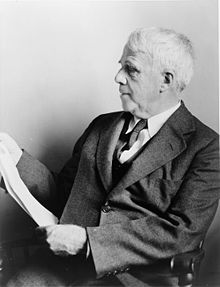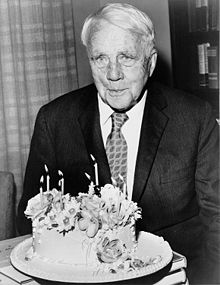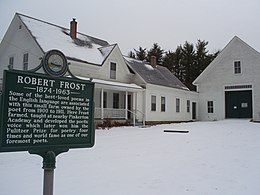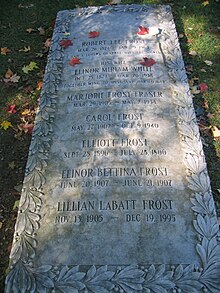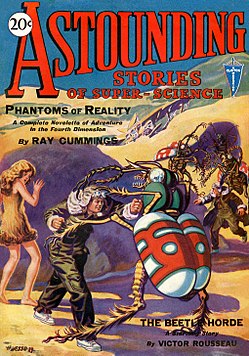Front piece of The Adventures of Tom Sawyer, 1876 1st edition. | |
| Author | Mark Twain |
|---|---|
| Country | United States of America |
| Language | English |
| Genre | Bildungsroman, picaresque novel, satire, folk, children's literature |
| Publisher | American Publishing Company |
Publication date | 1876 |
| OCLC | 47052486 |
| 813.4 | |
| LC Class | PZ7.T88 Ad 2001 |
| Followed by | Adventures of Huckleberry Finn |
| Text | The Adventures of Tom Sawyer at Wikisource |
The Adventures of Tom Sawyer is an 1876 novel by Mark Twain about a boy growing up along the Mississippi River. It is set in the 1840s in the town of St. Petersburg, which is based on Hannibal, Missouri, where Twain lived as a boy. In the novel, Tom Sawyer has several adventures, often with his friend Huckleberry Finn. Originally a commercial failure, the book ended up being the best selling of any of Twain's works during his lifetime.
Though overshadowed by its sequel, Adventures of Huckleberry Finn, the book is considered by many to be a masterpiece of American literature. It was one of the first novels to be written on a typewriter.
Plot
Tom Sawyer, an orphan, lives with his Aunt Polly and his half-brother Sid in the fictional town of St. Petersburg, Missouri, sometime in the 1840s. A fun-loving boy, Tom skips school to go swimming and is made to whitewash his aunt's fence for the entirety of the next day, Saturday, as punishment.
In one of the most famous scenes in American literature, Tom cleverly persuades the various neighborhood children to trade him small trinkets and treasures for the "privilege" of doing his tedious work, using reverse psychology to convince them it is an enjoyable activity. Later, Tom trades the trinkets with other students for various denominations of tickets, obtained at the local Sunday school for memorizing verses of Scripture. Tom then exchanges the tickets with the minister for a prized Bible, despite being one of the worst students in the Sunday school and knowing almost nothing of Scripture, eliciting envy from the students and a mixture of pride and shock from the adults.
Tom falls in love with Becky Thatcher, a new girl in town and the daughter of a prominent judge. Tom wins the admiration of the judge in the church by obtaining the Bible as a prize but reveals his ignorance when he is unable to answer basic questions about Scripture. Tom pursues Becky, eventually persuading her to get engaged by kissing him. Their romance soon collapses when she discovers that Tom was engaged to another schoolgirl, Amy Lawrence and that Becky was not his first girlfriend.
Shortly after Becky shuns him, Tom accompanies Huckleberry Finn, a vagrant boy whom all the other boys admire, to a graveyard at midnight to perform a superstitious ritual designed to heal warts. At the graveyard, they witness a trio of body snatchers, Dr Robinson, Muff Potter and Injun Joe, robbing a grave. Muff Potter is drunk and eventually blacks out, while Injun Joe gets into a fight with Dr Robinson and murders him. Injun Joe then appears to frame Muff Potter for the murder. Tom and Huckleberry Finn swear a blood oath not to tell anyone about the murder, fearing Injun Joe would somehow discover it was them and murder them in turn. Muff Potter is eventually jailed, assuming he committed the killing in an act of drunkenness and accepting of his guilt and fate.
Tom grows bored by school, and along with his friends Joe Harper and Huckleberry Finn, they run away to Jackson's Island in the Mississippi River to begin life as "pirates". While enjoying their freedom, they become aware that the community is scouring the river for their bodies, as the boys are missing and presumed dead. Tom sneaks back home one night to observe the commotion and after a brief moment of remorse at his loved ones' suffering, he is struck by the grand idea of appearing at his funeral. The trio later carries out this scheme, making a sensational and sudden appearance at church in the middle of their joint funeral service, winning the immense respect of their classmates for the stunt. Back in school, Becky has ripped the school master's anatomy book after Tom startles her, however, he regains her admiration by nobly accepting the blame and punishment for tearing the book.
In court, Injun Joe pins the murder on Muff Potter, although Tom and Huckleberry Finn know he is innocent. Before Potter's trial, Tom decides to defy his blood oath with Huck and testifies against Injun Joe, who quickly escapes through a window before he can be apprehended. Henceforth, the boys live in constant fear of Joe's revenge for incriminating him.
Summer arrives and Tom and Huck decide to hunt for buried treasure in a haunted house. After venturing upstairs, they hear a noise below and peering through holes in the floor, they see the deaf-mute Spaniard who had shown up in the village some weeks before revealing himself to be Injun Joe. Speaking freely, Injun Joe and a companion plan to bury some stolen treasure of their own in the house. From their hiding spot, Tom and Huck wriggle with delight at the prospect of digging it up. By chance, the villains discover an even greater gold hoard buried in the hearth and carry it off to a better hiding place. The boys are determined to find it and one night, Huck spots them and follows them; he overhears Injun Joe's plans to break into the house of the wealthy Widow Douglas and mutilate her face in revenge for her late husband, a justice of the peace, having once ordered him to be publicly whipped for vagrancy. Running to fetch help, Huck prevents the crime and requests his name not be made public, for fear of Injun Joe's retaliation, thus becoming an anonymous hero.
Just before Huck stops the crime, Tom goes on a picnic to McDougal's Cave with Becky and their classmates. Tom and Becky get lost and end up wandering in the cave for several days, facing starvation and dehydration. Becky becomes extremely dehydrated and weak and Tom's search for a way out grows more desperate. He encounters Injun Joe in the caves one day but is not seen by his nemesis. Eventually, Tom finds a way out and they are joyfully welcomed back by their community. Judge Thatcher, Becky's father, has McDougal's Cave sealed with an iron door. When Tom hears of the sealing two weeks later, he is horror-stricken, knowing that Injun Joe is still inside. He directs a posse to the cave, where they find Injun Joe's corpse just inside the sealed entrance, starved to death after having desperately consumed raw bats and candle stubs as a last resort. The place of his death and the in situ cups he used to collect water from a dripping stalactite become a local tourist attraction.
A week later, having deduced from Injun Joe's presence at McDougal's Cave that the villain must have hidden the stolen gold inside, Tom takes Huck to the cave and they find the box of gold, the proceeds of which are invested for them. The Widow Douglas adopts Huck but he finds the restrictions of a civilized home life painful, attempting to escape back to his vagrant life. Tom convinces Huck to go back to the widow, so he can later be a robber with Tom, because you need to be high society to be in a robber gang. Reluctantly, Huck agrees and goes back to the widow.
Significance
The novel has elements of humor, satire and social criticism – features that later made Mark Twain one of the most important authors of American literature. Mark Twain describes some autobiographical events in the book. The novel is set around Twain's actual boyhood home of Hannibal, near St. Louis, and many of the places in it are real and today support a tourist industry as a result.
The concept of boyhood is developed through Tom's actions, including his runaway adventure with Joe and Huckleberry. To help show how mischievous and messy boyhood was, The Miriam and Ira D. Wallach Division of Art, Prints and Photographs shows a picture of a young boy smoking a pipe, sawing furniture, climbing all over the place, and sleeping. In Twain's novel, Tom and his friend are young when they decide they want to learn how to smoke a pipe. Tom and Joe do this to show just how cool they are to the other boys.
Inception
Tom Sawyer is Twain's first attempt to write a novel on his own. He had previously written contemporary autobiographical narratives (The Innocents Abroad or The New Pilgrims' Progress, Roughing It) and two short texts called sketches which parody the youth literature of the time. These are The Story of the Good Boy and The Story of the Wicked Little Boy which are satirical texts of a few pages. In the first, a model child is never rewarded and ends up dying before he can declaim his last words which he has carefully prepared. In the second story, an evil little boy steals and lies, like Tom Sawyer, but finishes rich and successful. Tom appears as a mixture of these little boys since he is at the same time a scamp and a boy endowed with a certain generosity.
By the time he wrote Tom Sawyer, Twain was already a successful author based on the popularity of The Innocents Abroad. He owned a large house in Hartford, Connecticut but needed another success to support himself, with a wife and two daughters. He had collaborated on a novel with Charles Dudley Warner, The Gilded Age published in 1874.
He had earlier written an unpublished memoir of his own life on the Mississippi and had corresponded with a boyhood friend, Will Bowen, both of which had evoked many memories and were used as source material.
Twain named his fictional character after a San Francisco fireman whom he met in June 1863. The real Tom Sawyer was a local hero, famous for rescuing 90 passengers after a shipwreck. The two remained friendly during Twain's three-year stay in San Francisco, often drinking and gambling together.
Publication
In November 1875 Twain gave the manuscript to Elisha Bliss of the American Publishing Company, who sent it to True Williams for the illustrations. A little later, Twain had the text also quickly published at Chatto and Windus of London, in June 1876, but without illustration. Pirate editions appeared very quickly in Canada and Germany. The American Publishing Company finally published its edition in December 1876, which was the first illustrated edition of Tom Sawyer.
These two editions differ slightly. After completing his manuscript, Twain had a copy made of it. It is this copy which was read and annotated by his friend William Dean Howells. Howells and Twain corresponded through fairly informal, handwritten letters discussing many aspects of his works and manuscripts; language choices, character development, as well as racial development and depiction. Twain then made his own corrections based on Howells' comments which he later incorporated in the original manuscript, but some corrections escaped him. The English edition was based on this corrected copy, while the illustrated American edition was based on the original manuscript. To further complicate matters, Twain was personally concerned with the revision of the proofs of the American edition, which he did not do for the English edition. The American edition is therefore considered the authoritative edition.
Critical analysis
A third person narrator describes the experiences of the boys, interspersed with occasional social commentary. In its sequel, Adventures of Huckleberry Finn, Mark Twain changes to a first person narrative which takes moral conflicts more personally and thus makes greater social criticism possible. The two other subsequent books, Tom Sawyer Abroad and Tom Sawyer, Detective, are similarly in the first person narrative from the perspective of Huckleberry Finn.
The book has raised controversy for its use of the racial epithet "nigger"; a bowdlerized version aroused indignation among some literary critics.
The book has been criticized for its caricature-like portrayal of Native Americans through the character Injun Joe. He is depicted as malevolent for the sake of malevolence, is not allowed to redeem himself in any way by Twain, dies a pitiful and despairing death in a cave and upon his death is treated as a tourist attraction. Revard suggests that the adults in the novel blame the character's Indian blood as the cause of his evil.
Sequels and other works featuring Tom Sawyer
- Adventures of Huckleberry Finn (1884)
- Tom Sawyer Abroad (1894)
- Tom Sawyer, Detective (1896)
Tom Sawyer, the story's title character, also appears in two other uncompleted sequels: Huck and Tom Among the Indians and Tom Sawyer's Conspiracy. He is also a character in Twain's unfinished Schoolhouse Hill.
Adaptations and influences
Film and television
- Tom Sawyer (1917), directed by William Desmond Taylor, starring Jack Pickford as Tom
- Tom Sawyer (1930), directed by John Cromwell, starring Jackie Coogan as Tom
- Tom Sawyer (1936), Soviet Union version directed by Lazar Frenkel and Gleb Zatvornitsky
- The Adventures of Tom Sawyer (1938), Technicolor film by the Selznick Studio, starring Tommy Kelly as Tom and directed by Norman Taurog; notable is the cave sequence designed by William Cameron Menzies
- Tom Sawyer (1956), a musical episode of the U.S. Steel Hour, written by Frank Luther and starring John Sharpe as Tom and Jimmy Boyd as Huck.
- The Adventures of Tom Sawyer (1960), BBC television series in 7 episodes starring Fred Smith as Tom and Janina Faye as Becky. The series' theme song was "John Gilbert is the Boat", sung by Peggy Seeger
- Les aventures de Tom Sawyer (1968), Romanian/French/West German television miniseries directed by Wolfgang Liebeneiner, starring Roland Demongeot as Tom and Marc Di Napoli as Huck
- Aventurile lui Tom Sawyer (1968), Romanian movie directed by Mircea Albulescu.
- The New Adventures of Huckleberry Finn (1968), a half-hour live-action/animated series produced by Hanna-Barbera Productions
- Las Aventuras de Juliancito (1969), Mexican film
- Tom Sawyer (1973), musical adaptation by Robert B. Sherman and Richard M. Sherman, with Johnny Whitaker in the title role, Jeff East as Huck Finn, Jodie Foster as Becky Thatcher, and Celeste Holm as Aunt Polly.
- Mark Twain's Tom Sawyer (1973), TV movie version sponsored by Dr Pepper, starring Buddy Ebsen as Muff Potter and filmed in Upper Canada Village
- Páni kluci (1976), Czech movie directed by Věra Plívová-Šimková
- Huckleberry Finn and His Friends (1979), TV series
- The Adventures of Tom Sawyer (1980), Japanese anime television series by Nippon Animation, part of the World Masterpiece Theater, aired in the United States on HBO
- The Adventures of Tom Sawyer and Huckleberry Finn (Приключения Тома Сойера и Гекльберри Финна), 1981 Soviet Union 3 episodes version directed by Stanislav Govorukhin
- Rascals and Robbers: The Secret Adventures of Tom Sawyer and Huckleberry Finn (1982), a made-for-TV movie, starring Patrick Creadon as Tom and Anthony Michael Hall as Huck.
- Sawyer and Finn (1983), American television series pilot in which Tom Sawyer (Peter Horton) and Huck Finn (Michael Dudikoff) reunite by chance 10 years after the original story and seek new adventures in the Old West.
- Tom Sawyer (1984), Canadian claymation version produced by Hal Roach studios
- Tom and Huck (1995), starring Jonathan Taylor Thomas as Tom and Brad Renfro as Huck Finn.
- The Animated Adventures of Tom Sawyer (1998), Canadian version, written by Bob Merrill and directed by William R. Kowalchuk Jr. Uses the voices of Ryan Slater, Christopher Lloyd and Kirsten Dunst.
- Tom Sawyer (2000), animated adaptation featuring the characters as anthropomorphic animals instead of humans with an all-star voice cast, including country singers Rhett Akins, Mark Wills, Lee Ann Womack, Waylon Jennings, and Hank Williams Jr. as well as Betty White.
- Thomas Sawyer, as a young adult, is a character in the movie League of Extraordinary Gentlemen, portrayed by Shane West. Here, Tom is a U.S. Secret Service agent who joins the team's fight against Professor Moriarty.
- Tom Sawyer (2011), German version, directed by Hermine Huntgeburth.
- Tom Sawyer & Huckleberry Finn (2014), starring Joel Courtney as Tom and Jake T. Austin as Huck.
- Band of Robbers, a 2015 American crime comedy film written and directed by the Nee Brothers.
Theatrical
- In 1956, We're From Missouri, a musical adaptation of The Adventures of Tom Sawyer, with book, music, and lyrics by Tom Boyd, was presented by the students at the Guildhall School of Music and Drama.
- In 1960, Tom Boyd's musical version (re-titled Tom Sawyer) was presented professionally at Theatre Royal Stratford East in London, England, and in 1961 toured provincial theatres in England.
- In 1981, the play The Boys in Autumn by the American dramatist Bernhard Sabath premiered in San Francisco. In the play, Tom Sawyer and Huck Finn meet again as old men. Despite good reviews, the play has remained largely unknown.
- In the 1985 musical Big River by William Hauptman and Roger Miller, Tom is a secondary character, played by John Short from 1985 to 1987.
- In 2001, the musical The Adventures of Tom Sawyer, by Ken Ludwig and Don Schlitz, debuted on Broadway.
- In 2015, the Mark Twain House and Museum selected 17-year-old Noah Altshuler (writer of Making the Move), as Mark Twain Playwright in Residence, to create a modern, meta-fictional adaptation of The Adventures of Tom Sawyer for regional and commercial production.
Ballet
Tom Sawyer: A Ballet in Three Acts premiered on October 14, 2011, at the Kauffman Center for the Performing Arts in Kansas City, Missouri. The score was by composer Maury Yeston, with choreography by William Whitener, artistic director of the Kansas City Ballet. A review in The New York Times observed: "It’s quite likely that this is the first all-new, entirely American three-act ballet: it is based on an American literary classic, has an original score by an American composer and was given its premiere by an American choreographer and company. ... Both the score and the choreography are energetic, robust, warm, deliberately naïve (both ornery and innocent), in ways right for Twain."
Comic books
The Adventures of Tom Sawyer has been adapted into comic book form many times:
- Tom Sawyer and Huck Finn (Stoll & Edwards Co., 1925) – collection of the comic strip of the same name by Clare Victor Dwiggins, syndicated by the McClure Syndicate beginning in 1918
- Classics Illustrated #50: "The Adventures of Tom Sawyer" (Gilberton, August 1948) – adapted by Harry G. Miller and Aldo Rubano; reprinted extensively
- Dell Junior Treasury #10: "The Adventures of Tom Sawyer" (Dell Comics, October 1957) – adapted by Frank Thorne
- Joyas Literarias Juveniles #60: "Tom Sawyer detective" (Editorial Bruguera, 1972) – adapted by Miguel Cussó and Edmond Fernández Ripoll
- Tom Sawyer (Pendulum Illustrated Classics, Pendulum Press, 1973) – adapted by Irwin Shapiro and E. R. Cruz; reprinted in Marvel Classics Comics #7 (1976) and a number of other places
- Joyas Literarias Juveniles #182: "Las aventuras de Tom Sawyer" (Editorial Bruguera, 1977) – adapted by Juan Manuel González Cremona and Xirinius [as Jaime Juez]
- Classics Illustrated #9: The Adventures of Tom Sawyer (First Comics, May 1990) – adapted by Mike Ploog; reprinted in Classics Illustrated #19 (NBM, 2014)
- Tom Sawyer (An All-Action Classic #2) (Sterling Publishing, 2008) – adapted by Rad Sechrist
- Classics Illustrated Deluxe #4: The Adventures of Tom Sawyer (Papercutz, 2009) – adapted by Jean-David Morvan, Frederique Voulyze, and Severine Le Fevebvre
- The Adventures of Tom Sawyer (Capstone Publishers, 2007) – adapted by Daniel Strickland
- Manga Classics: The Adventures of Tom Sawyer (UDON Entertainment Manga Classics, April 2018) – adapted by Crystal Silvermoon and Kuma Chan
Video games
- The Adventures of Tom Sawyer, an action-platformer for the Nintendo Entertainment System. It was released by SeTa in February 1989 in Japan and August that same year in North America.
- Square's Tom Sawyer, a role-playing video game produced by Square. It was released in March 1989 for Japan on the Famicom.
Internet
On November 30, 2011, to celebrate Twain's 176th birthday, the Google Doodle was a scene from The Adventures of Tom Sawyer.


